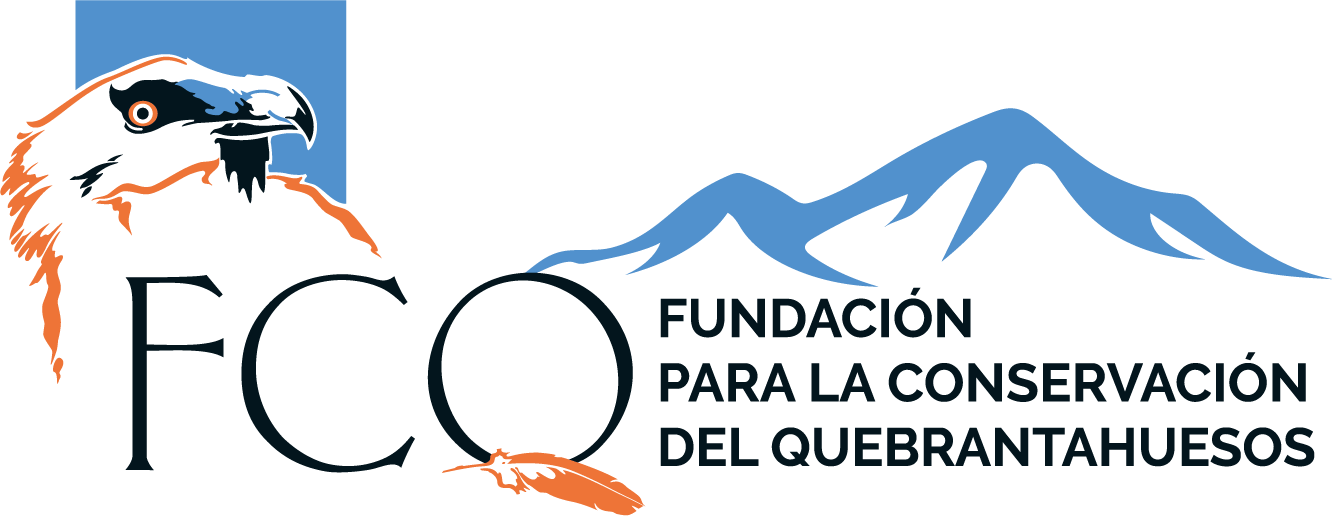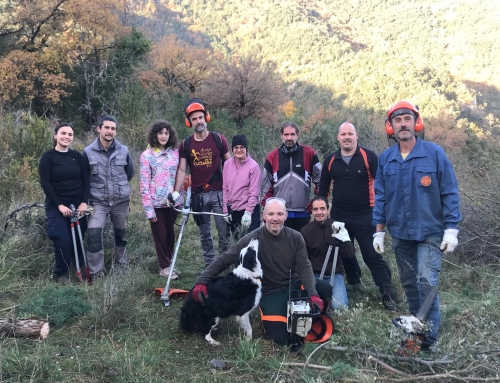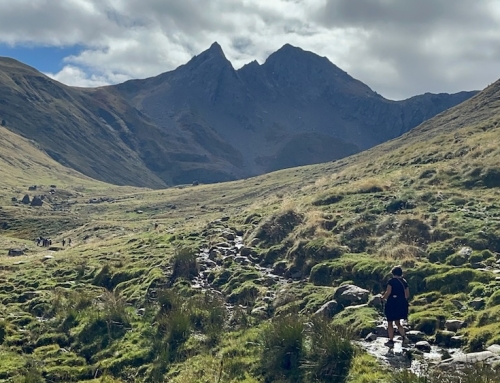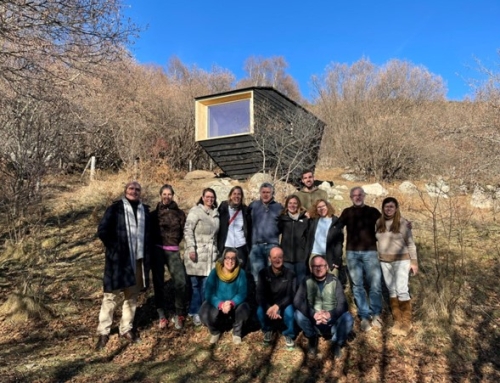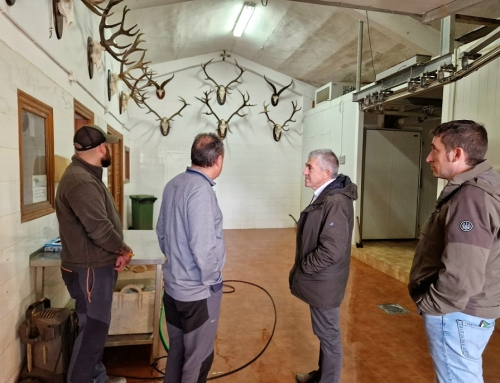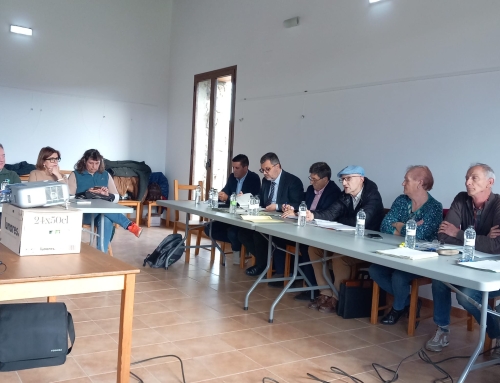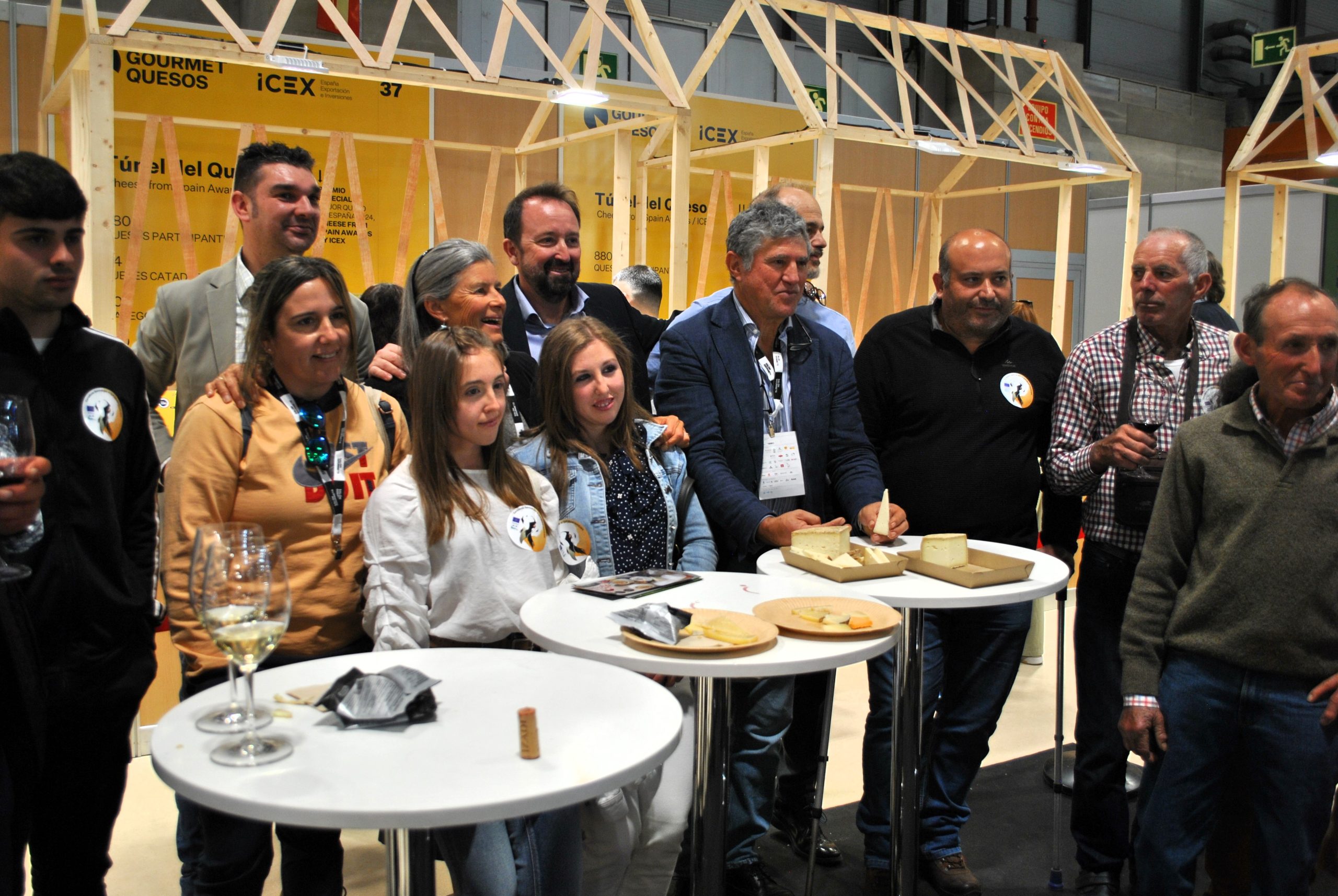
Pro-biodiversity’ breeders from Avila visit the Salón Gourmets in Madrid.
The visit brought together the goat farmers of the Sierra de Gredos who participate in the LIFE Pro Bearded Vulture project through the production of high quality cheeses.
A group of goat breeders from the Sierra de Gredos visited yesterday, at the invitation of the Foundation for the Conservation of the Bearded Vulture (FCQ), the Salón Gourmets, which is being held at IFEMA (Madrid). The breeders had the opportunity to walk around GourmetQuesos, a monographic area that brings together the best of the Spanish cheese scene and where they tasted the cheeses that the Candeleda Goat Cooperative is developing with the support of the FCQ through the LIFE Pro Bearded Vulture project. The farmers, who are part of the cooperative Ganaderos de Caprino de Candeleda (Ávila), accompanied by representatives of the FCQ and the Diputación de Ávila, tasted two of the goat’s milk cheeses that the cooperative is producing with the help of José Luis Martín, master cheese maker, who showed the magnificent characteristics of these cheeses. These products are being produced under the brand ‘Pro-Biodiversity’ in the framework of the LIFE project for the conservation of the bearded vulture.
Conservation and cheese.
This quality label will certify the commitment of the cheeses of the cooperative Ganaderos de Caprino de Candeleda with biodiversity, and especially with the recovery of the bearded vulture in the Sierra de Gredos in Avila. A natural area that is part of the Natura 2000 network and where the goats of the cooperative’s goat farmers graze extensively, resulting in the production of a gourmet quality cheese that meets the highest standards of sustainability and respect for the environment. “What it is ultimately about is showing farmers that supporting the conservation of ecosystems and biodiversity can be an opportunity to offer a differentiated product,” says Gerardo Báguena, vice president of the FCQ. “It is very important for the future of the rural environment that the declaration of an area as protected is not a limiting factor but rather offers the possibility of carrying out an economic activity such as the production of high quality cheeses,” continues Báguena.
